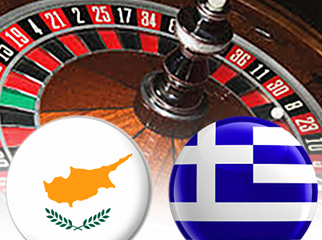 The Greek half of Cyprus has announced plans to build its first resort casino. While the Turkish-controlled portion of the Mediterranean island hopped on the casino bandwagon years ago, the Greek-controlled southern half is now seeking to reap the same financial rewards from gambling as their northern neighbors. On Thursday, the Greek Cypriot cabinet announced its intention to issue a single license for an integrated resort casino, pending passage of the necessary legislation by parliament, which is currently on holiday until September. A tendering process will then commence, with the casino contract expected to be awarded within the coming 12 months.
The Greek half of Cyprus has announced plans to build its first resort casino. While the Turkish-controlled portion of the Mediterranean island hopped on the casino bandwagon years ago, the Greek-controlled southern half is now seeking to reap the same financial rewards from gambling as their northern neighbors. On Thursday, the Greek Cypriot cabinet announced its intention to issue a single license for an integrated resort casino, pending passage of the necessary legislation by parliament, which is currently on holiday until September. A tendering process will then commence, with the casino contract expected to be awarded within the coming 12 months.
As for what finally tipped the Greek Cypriots’ hand, government spokesperson Christos Stylianides made no attempt to obfuscate. “The economy needs it.” In March, the newly elected coalition government announced its intention to end its longstanding prohibition on casino gambling, promising the first gaming joint would open within two years. Since then, the economy has only worsened, prompting the government to impose a supremely unpopular levy on the country’s banks in order to qualify for another round of Euro-zone bailout billions.
Cyprus’ announcement follows news earlier this week that Greece has been referred to the European Court of Justice (ECJ) by the European Commission over alleged state aid to three Greek casinos. In 1999, the Greek government imposed a €12 per person admission tax on private casinos, while two state-owned casinos in Mont Parnès and Corfu and one private casino in Thessaloniki were only required to charge customers €4.8. In May 2011, the EC ordered Greece to scrap the biased scheme and to recover the funds the three scofflaw casinos should have contributed to the state’s coffers, but the government has yet to comply with this order. This is hardly the first instance in which Greece has been called on the carpet over preferential treatment shown to state-owned gambling firms, as evidenced by the recent kerfuffle over Greece’s awarding of its monopoly online gambling concession to formerly state-controlled betting monopoly OPAP.
